Ingles or Ingle's? Who Cares, It's Cheap!
Special Offer: Buy a business, get a property portfolio FREE
Disclaimer: The author has a position in Ingles, but may either exit or increase that position at any time. This post is for informational purposes only and should not be construed as investment advice. Conduct your own due diligence and seek professional investment advice before making any investment decisions.
Market Cap $1.37 billion @ Share Price $71.70
Enterprise Value $1.59 billion
Public Float 76.4%
Payout Ratio 7.7% @ 0.9% Dividend Yield
Capitalized at 8.59x Earnings, 0.24x Sales on a Net Margin of 2.8%, Earnings yield 11.6%
Net Debt/EBITDA 0.66x
Employees: 11,625
Ingles Markets, Inc. (NASDAQ: IMKTA) is a regional supermarket chain primarily operating in the southeastern United States. Contrary to popular belief, caused by a punctuation failure, this is not a Spanish supermarket. It was founded in 1963 by Robert Ingle and so has an eponymous name. So the pronunciation is ‘IN-GALLS’, rather than ‘IN-GLESS’.
The company is based in Asheville, North Carolina, and operates around 198 supermarkets across six states: North Carolina, South Carolina, Georgia, Tennessee, Alabama, and Virginia. Ingles Markets is a family-owned business, with the Ingle family retaining a significant ownership stake, and the company focuses on providing high-quality, affordable grocery products, emphasizing convenience and community engagement.
It possesses several unique characteristics that differentiate it from competitors. Its significant real estate holdings, vertical integration, strong regional presence, and growing leasing business provide it with competitive advantages. Additionally, its inflation resistance and family ownership give it stability and long-term growth potential, making it a standout player in the grocery retail industry.
However, the real surprise here was the discovery that its fair value of its land holdings exceeds the company’s current market capitalization, making this what Ben Graham called a net/net opportunity. Then there’s off-balance sheet assets not being factored into its valuation by the market which are estimated to be worth another $658 million.
There is so much to unpack in this analysis, but I shall explain it all in this post.
Management and Ownership
Ingles remains a family-owned business, run by CEO James W. Lanning and with the owner’s son, who is also named Robert Ingle, but goes by the name ‘Bobby’, serving as Chairman. He owns 22.1% of the business and controls 72% of the votes.
This family management structure, which is about preserving and growing the value of the business in which they have most of their personal wealth, is preferable to other businesses run by short-term career CEOs who are only interested in short-term metrics to secure their bonus. Best of all, management is not taxing shareholders by awarding themselves stock based compensation which is refreshing in this day and age. Focusing on what is in the long-term best interests of the business aligns management’s interests with shareholders and promotes a conservative approach to corporate stewardship which has seen the paying down of debt and avoiding excessive leverage, further solidifying Ingles’ strong financial foundation.
Ingles has repurchased 20% of its shares over the past decade, reducing its share count and creating more value for long-term shareholders. Additionally, the company has never reported a net loss in its history as a publicly traded company, demonstrating strong financial discipline.
Gross margins are very stable at around 24%, while sustainable operating margins seem to be settling around 3.5% (Ingles experienced a significant spike in operating margins from 2020 through 2022, driven by several key factors, many of which were related to the COVID-19 pandemic and broader macroeconomic conditions. The inability to eat out, meant that more groceries were being consumed at home, people were spending more on cleaning products due to fear of the virus, and panic stock piling of supplies. Larger basket sizes allowed Ingles to increase its overall efficiency and so enhance its margins. Additionally, during the lock-down period, there was far less promotional spending which reduced SG&A expense. Consequently, operating margins peaked at 6.8% but have since reverted closer to pre-pandemic levels.)
The Real Estate Angle
One of the most unique aspects of Ingles Markets is its substantial ownership of real estate. Unlike many of its competitors, Ingles owns a large portion of the land and properties where its supermarkets and shopping centers are located (84.3%). This sets it apart from its competitors.
Although the company uses the term ‘shopping centre’, these are not shopping malls, they are really retail parks or plazas with a large car park in the centre and the various retail units around the periphery.
The key to understanding the value of Ingles is its real estate. Many of its properties are located in prime suburban areas, and the value of these properties has been appreciating steadily. The issue is that the company uses a network of subsidiaries for real estate holdings, complicating any assessment of its full portfolio. The assets are held on the balance sheet of the subsidiaries, and not properly reflected in the balance sheet of the holding company - in other words, for our purposes of analyzing Ingles Markets Inc, they are off-balance sheet items. The subsidiaries have some peculiar names, “Sky King,” “Shopping Center Financing II,” and “Land O Sky” and “Ingles Acquisitions”.
It should be noted that this is not entirely unique. Kroger, another supermarket chain, which is 7% owned by Berkshire Hathaway, owns an estimated 50% of its stores but they are not fully reflected in its annual reports.
Another issue is that the value of the land was captured at the point of acquisition, but has since been improved through the construction of stores on that land. Much of this expenditure is depreciated, while the actual value of the land has inflated in value over time. So there is a clear disconnect in the true value of its real estate holdings and that recorded on the balance sheets of it and its subsidiaries.
In order to discover the true value, first it became necessary to identify each parcel of land owned, then assess its gross developed market value today, and then evaluate the entire estate on a sum of the parts basis.
This detailed analysis, mostly from tax records, was painstakingly undertaken by Gwen Hofmeyr of Folly Partners (data attached) - I am grateful for her diligence and willingness to share. (Please feel free to analyze the data and independently fact check it if you wish. Be aware that this data is not entirely complete, for example, it excludes Alabama and Virginia county records due to the limited number of stores in those states. However, this will have no negative impact on the findings of this analysis, and simply implies that there could be even more hidden value to be discovered.)
Total acres identified summed to 3,631.6 and these were appraised at a fair market value of $383.1 million, which is $37.4 million greater than appears in Ingles’ filings. Adjusting for the three missing Ingles stores, a suspected additional 39.6 acres of land valued at $123,478 per acre is absent, which equates to a total adjusted land value of $388 million, or $42.3 million in off-balance sheet land. Further, in relation to the depreciated improved land, an estimated $615.4 million in improved land has been fully depreciated. Adding this to the $42.3 million off-balance sheet land, a total of $657.7 million in real estate value is estimated to be absent from Ingles’ FY2023 consolidated balance sheet.
It is estimated that the true present market value of of Ingles’ land and buildings is significantly higher than the financial records indicate. The fair value of the land has been estimated to be in excess of Ingles’ current market capitalization, currently around $1.4 billion. The implication being that once the assets are stripped out of the market cap, the business, as a going concern, is being valued at less than zero. An alternative interpretation is that you could buy the business and inherit a very valuable land portfolio for free (more on this later).
Additionally, to keep competition at bay, the company has often strategically bought land near to its own stores on which other supermarkets could have introduced their own stores to compete. This has resulted in Ingles having a substantial amount of undeveloped or under-utilized land, which may provide future development opportunities that may enhance the land value still further. Selling the land subject to restrictive covenants may be another option, if that wouldn’t breach anti-trust laws.
The Business
Ingles operates two chains of supermarkets. One carries the ‘Ingles Markets’ brand and has 189 branches, while the other trades as ‘Sav-Mor’ operating in nine locations. positions its stores conveniently close to residential areas in smaller towns and suburban areas where it often holds a dominant market share. This means that it faces less direct competition from major national chains like Kroger or Walmart in many of its core markets. It competes strongly on price, but where it's not the cheapest supermarket, it often wins on the basis of proximity, convenience, and brand loyalty.
The grocery segment has seen steady revenue growth, with sales increasing by 39% from 2009 to 2019 and spiking during the inflationary period from 2020 to 2022.
It has pricing power more akin to a convenience store than a traditional supermarket, which made it far more resilient during inflationary times. It has demonstrated an ability to pass on rising costs to consumers, protecting its margins, without losing its competitive edge.
Between 2019 and 2021, Ingles' net profit margin increased by 163.2%, an impressive performance compared to the industry, which saw margins contract by 21.4% during the same period.
Ingles is highly vertically integrated, which is uncommon for a supermarket chain of its size. It owns and operates a 1.65 million-square-foot distribution center located in Asheville, North Carolina, that supplies 57% of the products stocked in its stores. Additionally, the company owns a dairy processing subsidiary, Milkco, which produces dairy products sold both in Ingles stores and to third-party retailers across 17 states.
This vertical integration allows Ingles to control costs, manage its supply chain more effectively, and to offer competitive pricing.
In addition to the vertically integrated supply chain, Ingles is less focused on growing its number of stores and more focused on increasing consumer spend per store through the expansion of convenience. As such its locations boast fuel stations (108), car washes (18), pharmacies (114) , Starbucks pop-ups (108) and curbside pick-ups (129). In combination these enhance its consumer value proposition and differentiate Ingles from its competitors. It becomes less necessary to compete on price, when customers are attracted to shop at your store due to the provision of very convenient ancillary services.
The Butterfly Effect and the Pivot
In 2014, the price of fuel crashed, and Ingles’ fuel sales fell by 29.5%. Concurrently supermarket revenue numbers were growing at little over 1% annually. This caused the company to pivot in a different direction. The rate of opening new supermarkets, new fuel stations and new pharmacies was deliberately slowed, and capital began allocating more capital to real estate acquisitions. Since 2014 an average 19.3% of EBITDA has been utilized for this purpose, accelerating over the past five years to 21.5% - a very accretive reinvestment of earnings yielding healthy returns on capital. At this rate Ingles could add an additional $650+ million to its real estate portfolio within a decade and these are assets that appreciate in value over the long term.
The company owns 93 shopping centres, many of which house its supermarkets alongside other tenants like retail stores and service providers. This has become the engine of growth and provides Ingles with a profitable leasing business, making it a strategic asset.
Ingles’ leasing business has been significantly outpacing the growth of its grocery segment.
The leasing arm generates substantial operating income and stable cash flows with minimal marginal capital expenditure after the initial real estate acquisition is completed, which compares favorably to the supermarket operations.
The property management and shopping center leasing segment has emerged as a critical part of the company's future. While leasing contributes only a small portion of total revenue, around 0.5%, its contribution to total EBIT is much more significant, comprising 11.5% of total EBIT. This reflects the high profitability of the leasing business relative to the lower-margin supermarket operations.
This explains why the astute management are allocating more capital to growing the leasing business. As the company continues to acquire real estate and develop shopping centers, this segment is poised to contribute more and more to overall profitability.
Ingles has normalized its EBITDA margin to 4.7%, leading to cash EBITDA of around $326 million annually. Since Ingles allocates around 19% of its EBITDA to real estate acquisitions annually, this will add approximately $60+ million in additional property value a year.
Real estate businesses, especially those with high margins and steady cash flows are often valued based on their funds from operations (FFO), broadly equivalent to EBITDA multiples (calculated as EBIT, plus depreciation because real estate values hold, less operating expenses). Ingles leasing business operates with a normalized FFO margin of close to 81%, which is dramatically higher than the grocery business. This segment has seen compound annual growth rates of 13.7% in rental income and 14.7% in FFO over the last few years which is very encouraging. Given its growth rate and margin profile, Ingles Leasing ought to command a far higher valuation multiple than the core supermarket business.
As an ancillary benefit of owning shopping centres, Ingles is able to decide which tenants occupy each retail unit, which is a great way to ensure that competitors of the supermarket don’t move in. Instead, it leases units to businesses that enhance the convenience value for its own customers. So units are typically occupied by restaurants, barbers, hair stylists, nail salons, fitness studios, garden centers, etc. If consumers can service all of their needs in the same shopping center that also houses an Ingles supermarket, then they are likely to do their grocery shopping there at the same time, rather than having to drive across town to the nearest competitor.
Valuation
The market appears to be undervaluing the supermarket operations due to its perception of Ingles as a regional player with limited geographic growth. This presents an opportunity for investors to buy into a business with steady cash flow and growth prospects at a discount.
Ingles appears to be priced at an even more significant discount to its intrinsic value when factoring in the strategic shift toward the higher-margin and steadily growing leasing business.
Some analysts attempt to value Ingles using a price-to-book (P/B) ratio, but I believe this approach is flawed. The argument suggests that by adjusting for hidden real estate, Ingles' P/B ratio drops from 0.87x to 0.61x, which is 52% below its historical levels, indicating deep undervaluation. However, P/B ratios are contextual and should be considered alongside return on equity (ROE), as the two are directly related. Since "equity" and "book value" are synonymous, a company’s ability to command a premium over its book value depends on its ROE. If we adjust the balance sheet to reflect the true value of real estate, both the P/B ratio and ROE will decline proportionately. This renders historical P/B values, that were calculated on an undervalued asset base and an entirely different ROE, irrelevant as a comparator. These analysts are comparing apples to oranges.
The valuation of Ingles Markets is complex, given the company's combination of supermarket operations, vertically integrated businesses, real estate holdings, and a growing leasing business.
The rate of growth of the real estate portfolio is likely to result in the generation of rental income which alone would justify a market capitalization of over $1 billion within ten years. Then add to that that value of the real estate portfolio which will appreciate in value over time, which a decade from now at the current growth trajectory looks like it will be worth something in the region of $2.75 billion. When analyzing the supermarket operations, it is necessary to avoid double counting by stripping out any earnings that fall into the other segments (for instance free cash flow numbers add back depreciation for the leasing business and capex spending for Milkco, so these need to be adjusted). After adjustments, and on a very modest EBIT growth rate of 1%, and assuming that the business trades on a conservative 9x adjusted free cash flow, the supermarkets would be worth close to $1.75 billion. Relative to these three segments, Milkco’s valuation is likely to be almost insignificant, but it should be worth somewhere in the order of $75m.
On a sum of parts basis, that puts a 2033 valuation on this business of almost $5.6 billion. If we discount that at an Ibbotson discount rate of 10%, that suggests that this business is worth closer to $2.6 billion today against a $1.4 billion market cap.
A strong argument could be made for Ingles to eventually split these businesses into real estate and leasing on the one hand, and supermarkets and vertically integrated businesses on the other. That would certainly force the market to apply its mind to the true valuation of this business.
Over the past decade Ingles' earnings per share (EPS) has grown by 309%, significantly outperforming competitors like Walmart (+38.7%) and Kroger (+70.3%). Some of this was due to the spike in operating margins discussed earlier, which are now reverting to more normal pre-Covid levels, but much of it will be down to its more diversified operating model.
Ingles has been conservative in its use of debt. Over the last decade, it has paid down $403 million in debt, significantly reducing its debt-to-equity ratio from over 200% to just 67%. This deleveraging has strengthened the company’s balance sheet, providing financial flexibility for further real estate acquisitions or other strategic investments.
Additionally, the company has repurchased 20.4% of its outstanding shares over the last 10 years, which enhances value for remaining shareholders by reducing the share count and increasing EPS. This commitment to capital return, coupled with strong balance sheet management, further solidifies Ingles' attractiveness as a long-term investment.
The share price appreciation has been non-linear (see chart below).
From 2014 to 2021, the company's share price moved sideways. Management recognized that the business was being undervalued relative to its intrinsic worth, and in 2021, initiated a share repurchase program, reducing the outstanding shares by 6.3%. This marked the first buyback since 2014 and served as a catalyst for the stock's rise from $37 to $100 (+270%). However, no subsequent buybacks have occurred since 2021, leading to some profit-taking, with the share price pulling back to $71. Despite this, the stock has still achieved an 11.5% compound annual growth rate (CAGR) over the past decade. Since the stock appears vastly undervalued, and with cash reserves at an all-time high of $355 million, additional buybacks are likely. The company could also choose to suspend dividend payments to accelerate share repurchases, which would be a more accretive way to return value to shareholders.
The business has been steadily paying down debt, leaving little remaining. As a family-owned company, management seems to view external shareholders as somewhat of an inconvenience, reflected by their limited engagement with them. In 2018, the company ceased conducting earnings calls with Wall Street, opting instead for high-quality written annual reports that exceed mandatory disclosure requirements. This suggests management is willing to report on the business but has no interest in being questioned or challenged by outsiders. Their stance seems to be: if investors dislike how they run the company, they are free to exit.
Given this attitude towards external shareholders this adds further support to the argument that more buy-backs are likely. By reducing equity finance within the business, Bobby is removing external shareholder for whom he has no time, which may lead to eventual privatization. Such a move would make sense given the stock’s current undervaluation and could unlock significant value in the process.
The company has always focused on the big picture rather than the next quarter, which is probably why it dislikes to engage with Wall Street’s short-term mindset. This reluctance to participate in earnings calls with Wall Street has arguably lead to its mispricing, as it remains underfollowed and misunderstood by many investors.
As awareness grows, driven by analysis like this, increased buying interest could push the stock closer to its intrinsic value. There's also the possibility of a takeover attempt, with private equity firms potentially interested in unlocking value by splitting out the company’s real estate and grocery businesses. Notably, in 2017, Mario Gabelli attempted to acquire 5% of the company and launch an activist campaign but was thwarted by the chairman, Bobby, who controls 72% of the voting power. Gabelli remains a shareholder to this day.
Succession planning is another consideration. While Bobby is unlikely to retire soon, at some point in the next decade, he may begin to think about the future of the business. This could make the company a potential target for Berkshire Hathaway, which already has a stake in its competitor, Kroger.
In conclusion, while the future is uncertain, Ingles appears poised for long-term growth, making it an attractive investment at its current valuation.


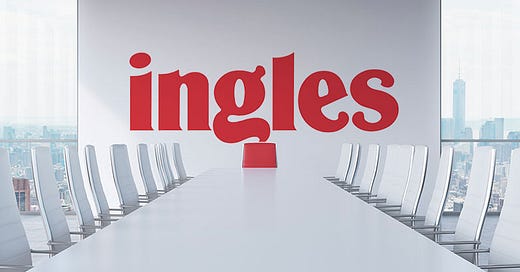




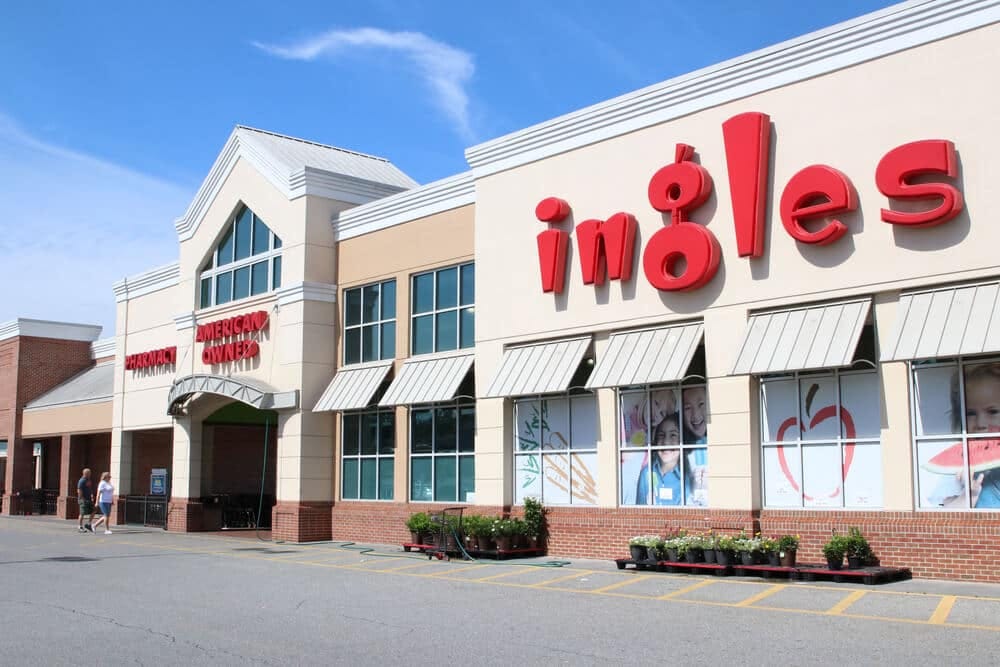
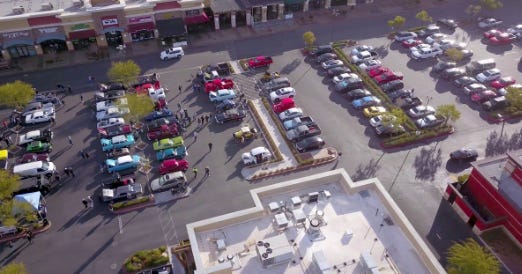
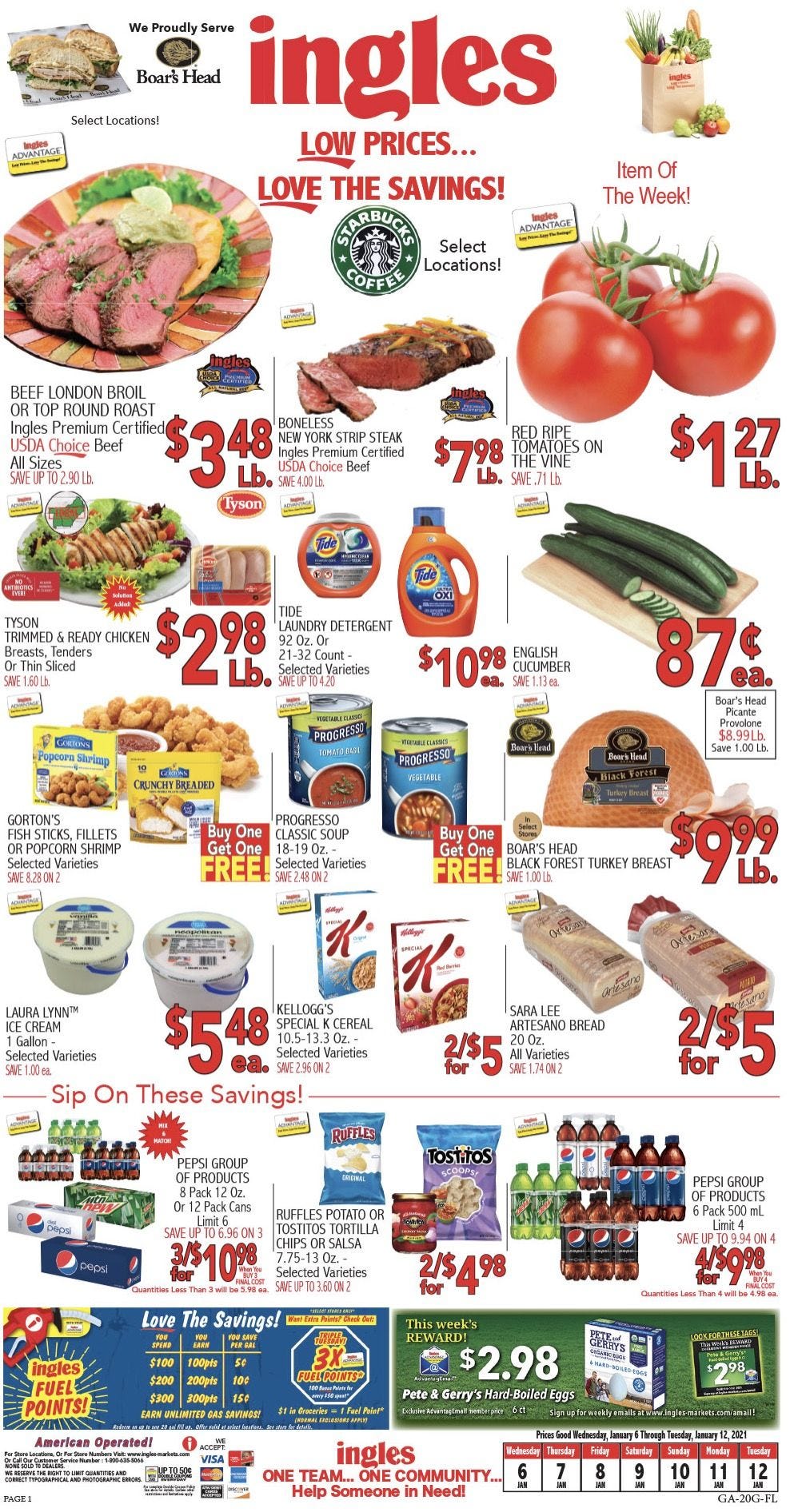







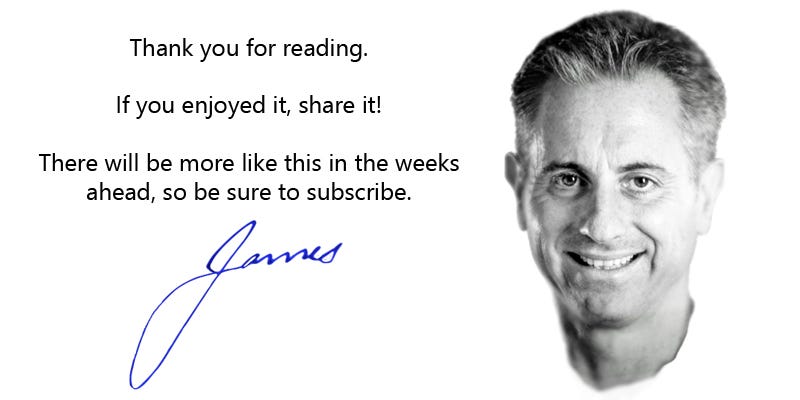
Ingles Markets Inc: Hurricane Helene, 30th October 2024 Update
-Hurricane Helene affected the operation of the company’s stores and its distribution center in North Carolina in late September.
- Of its 198 grocery stores, 194 stores are currently open. The other 4 will reopen over the next 3-9 months
- The estimated financial impact of inventory and property loss at between $35 million and $55 million, for which it expects between $10 million to $15 million of insurance reimbursement.
- The company will include this impact in its upcoming report on the fiscal quarter and year ended Sept. 28.
- Ingles pointed out that the ultimate financial impact of inventory and property loss may differ materially from current estimates due to, as the company put it, "the complexity and preliminary nature of the information currently available to us."
Valuable analysis of a very interesting regional player, thank you. Despite opinons below, I suggest the hurricane impact is not material relative to the size and strength of the business. This isn't a Boeing Dreamliner issue. let's not forget that immediate competition will also have felt this impact. After doing my own backup research, I felt that the short-term impact to the share price represented a buying opportunity. Thank you James for alerting me.